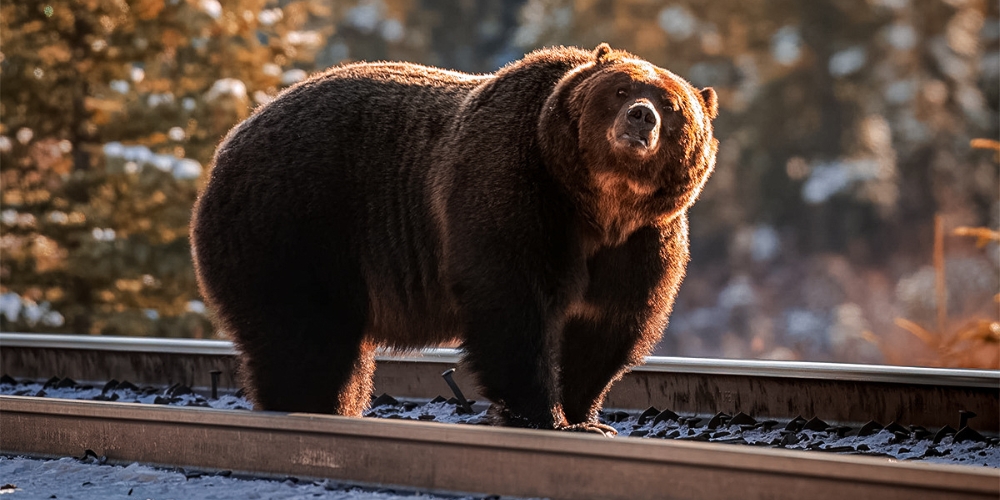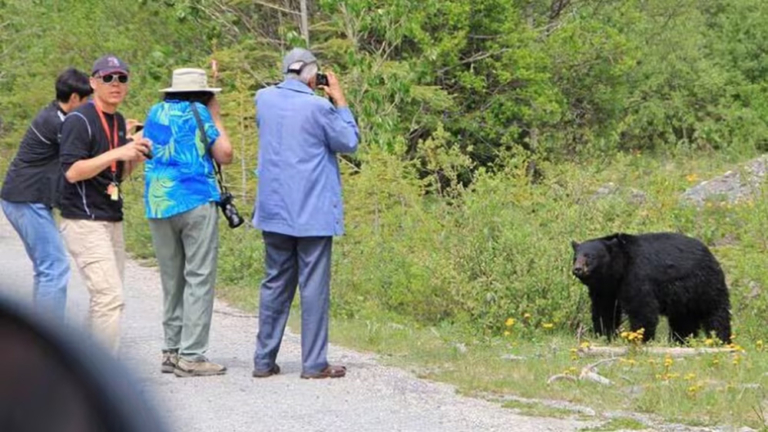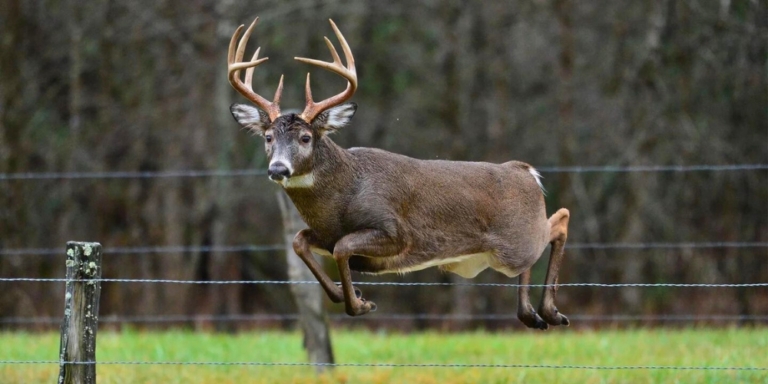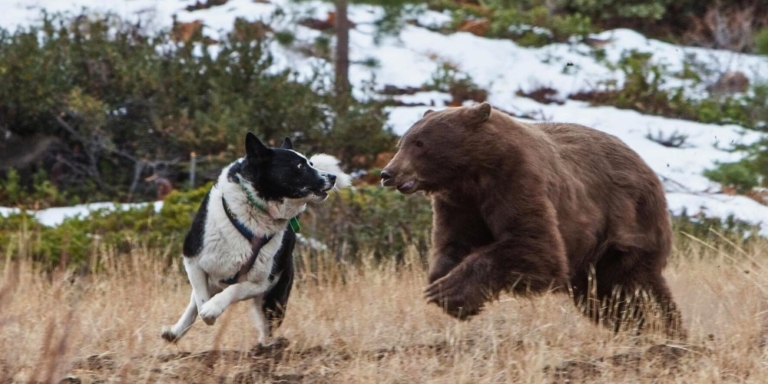Bear No. 122, better known as “The Boss,” is an icon in Alberta. He is known for his massive size. In fact, the only thing bigger than The Boss is his appetite. In his 22 years of life, the seasoned grizzly has eaten a black bear and even survived being struck by a train.

But even The Boss has a weakness: habituation.
Animal habituation happens when animals become used to human presence or other interactions that they initially viewed as threatening. Over time, the animals lose their natural fear with repeated exposure and no negative consequences.
This is bad for a number of reasons.
For starters, a large predator that no longer fears humans is a threat. They may approach campsites or wander into populated areas in search of food, which can lead to dangerous encounters.
Also, when predators get most of their food from human sources, they lose their ability to hunt and survive on their own.
The Boss is the patriarch of the bears in Banff National Park. As his nickname suggests, he’s the boss in the area, with a home range of more than 2,500 square kilometres.
The grizzly was recently spotted feasting on an animal carcass, believed to be a deer, in a forested area in in the Banff townsite behind the Fenlands Recreation Centre. The site has since been closed off to the public.
Anyone caught ignoring the closure could be slapped with a court fine of up to $25,000. Spot closures like this are the best way to protect animals like The Boss from human exposure and habituation.
Protect Yourself and the Bears
“Our message is to obey all signage and notices from Parks Canada about any closures…Resist the temptation to try to get photos and respect the closure as needed to keep people and bears safe,” Jason Darrah, Banff’s director of marketing and communications, told the Cochrane Eagle.
It turns out The Boss isn’t alone. Two days ago, Parks Canada issued a town-wide warning for Banff due to several bears in the area. The agency warned tourists and residents to be prepared to encounter a bear anywhere in and around the town. Parks Canada also asked that visitors use safe practices. This includes:
- Properly disposing of food and garbage
- Making noise while hiking or cycling
- Keeping pets on leash
- Paying attention to your surroundings
- Carrying bear spray and knowing how to use it
At this time of year, bears are desperate to fatten up before hibernation and will seek out human food sources when food-stressed.
“This is kind of that critical time where it’s just before den up, their metabolism is slowing down a little bit, but they are still seeking any food that they can find,” said Blair Fyten, human-wildlife conflict specialist for Banff National Park.
This includes rummaging through garbage, bird feed, compost, and unpicked fruit trees. The more a bear gets used to human food sources, the more likely the animal will return to the same area. This increases the likelihood of the bear being labelled a safety risk and killed.
Fruit trees in Banff are of particular concern and put bears and humans at risk. The town of Banff has a new bylaw that allows the municipality to order homeowners to clear fruit from trees or the ground. If not followed, officers can issue an order to remove the fruit, and in extreme cases, a court order might be given to uproot the tree or shrub entirely.
The Boss On the Prowl
Last week, The Boss was seen chowing down on crabapple trees in the neighbourhood on the northeast edge of town. His feasting frenzy started in a backyard along Marmot Crescent, where the grizzly ate apples scattered on the ground.

That night, with the homeowners’ permission, Parks Canada chopped down the tree. But The Boss returned to the backyard for several days afterwards, showing just how easily an animal can become habituated. Parks Canada’s wildlife team set up a camera in the backyard to monitor The Boss.
When he returned, the crew hazed The Boss. Hazing uses loud noises and rubber bullets to scare an animal away. This method is used to reinstill fear of humans in an animal, even one as tough as The Boss. The massive grizzly has only been hazed out of the townsite once before, a few years ago.
Colleen Campbell is a member of the Bow Valley Naturalists, a group of “nature lovers, advocates, and researchers in the Bow Valley.” She hopes The Boss will pass away due to natural causes like old age and not a management decision caused by the poor behaviour of Banff residents.
“He deserves to live out his life – never easy for a bear. I think it is really sad that bears become ‘celebrities’ in the eyes of the public – I hope people stay out of the closed area, away from the marked limits, and stop watching for him – or other bears, for that matter,” expressed Campbell.
“It is a question of treating wild animals with respect: not chasing, not feeding, not teasing, not watching except from a very great distance – more than three or four bus lengths – far enough away that binoculars are needed,” she continued.
Our Role
Fruit trees like crap apple, chokecherry, and mountain ash all grow in Banff and can attract wildlife. It is legal to plant and keep fruit trees in the town. But a change to a bylaw will allow the town to remove a fruit tree without permission if it attracts bears and risks public safety.
The Boss is a celebrity in Alberta, but that doesn’t make him any less deserving of respect. Bears have an incredible sense of smell, so a fruit tree smells like a freshly baked pie to a food-stressed bear.
We must do our part to protect these beautiful animals that are such an essential part of our identity from human habituation.






